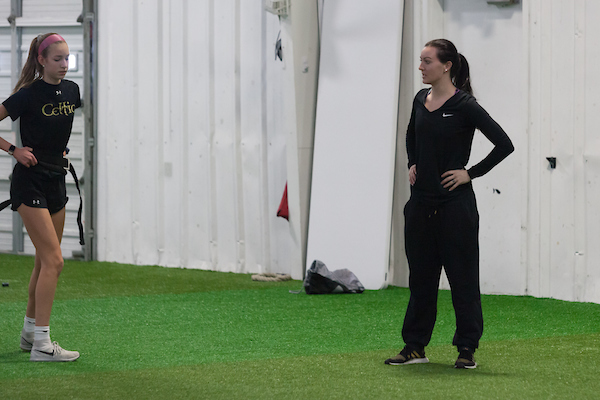
27 Apr Building Strong Women Starts With You, Coach
If you are a coach to female athletes, you need to be walking the walk right now.
No one cares how many wins you have, state cup championship trophies you’ve stacked, Twitter followers you’ve acquired, D1 players you sent to college, national coaching licenses you’ve gotten, and acronyms you laid out like the alphabet behind your name.
What young female athletes need is coaching.
I’ve been telling you for years that this encompasses more than the x’s and o’s, the tactics and the formations, the wins and the rankings, the strength and conditioning, and the ACL reduction training.
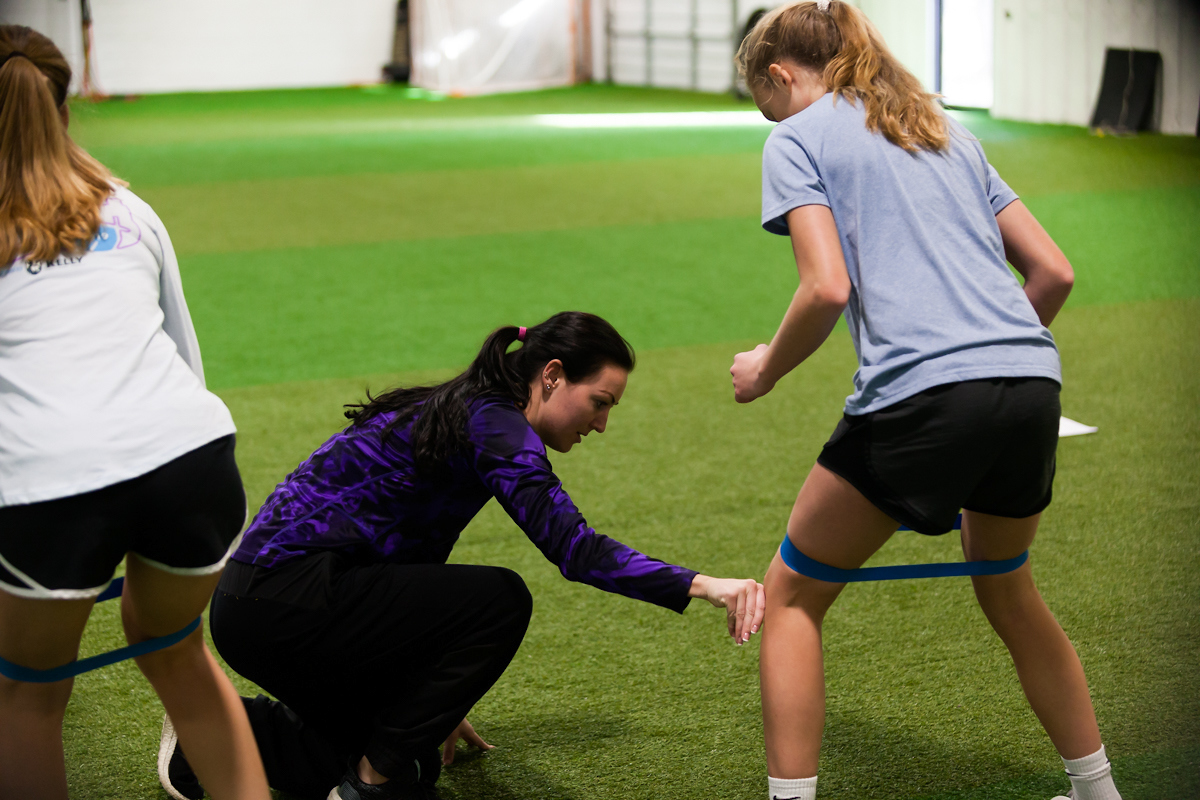
Speaking of ACL, I don’t want to write a dissertation on it in this article.
Of course, it is a serious issue that you need to understand and be able to problem solve as a coach who is caring for young girls.
But what you need to know is coaching the female athlete extends far beyond the ‘oh, well females just have wider hips’ comment.
Yes, anatomy and physiology play a role when customizing strength and conditioning and programming training loads.
With that said, I’m going to gloss over the tip of the iceberg, so here is what you need to know as far as physical training for the female athlete:
1. The menstrual cycle is something to be aware of in terms of a decline in sleep quality and an increase in fatigue. An excellent tracking app to use is FitrWoman that helps you to understand what phase of the cycle they are in, and if they need an extra push to recover harder and dial in on nutrition, as well as sprinkle in any extra supplementation.
To that end, training won’t necessarily have to change too much, but I recommend finding ways to optimize their physical and mental recovery during the pinnacle times of fatigue, depletion of iron, and oscillation of hormone levels.
2. Studies say the growth spurt can happen as early as age 10, so female athletes can begin to learn movement patterns and progress with strength training monitored by a professional.
According to Stracciolini et al, such programs will enhance muscular fitness, improve sport performance and reduce the chance of sports-related injuries.
3. The time when females are growing the most rapidly in terms of height can cause disturbances in coordination. The growth spurt can be a tough time for young athletes, as accelerated growth leads to disturbances in coordination and overall movement, and can impact performance negatively (Quatman-Yates, Quatman, Meszaros, Paterono, et al. 2012).
You as the coach must be patient when this happens, and be careful not to program a practice with full field squat jumps and suicides, or worse yet, endless high impact runs on the concrete stadium steps.
4. After the the growth spurt (PHV), female athletes experience more weight gain and an increase in fat mass (Peak Weight Velocity). It is critical coaches understand this as it can hinder speed and other factors of performance.
A study done by Tønnessen et al. states it may be beneficial for female athletes to have a greater focus on neuromuscular training during this period.
Additionally, increases in fat mass and reductions in relative strength often occur alongside reductions in coordination and neuromuscular control (Tønnessen 2015).
Hint: be patient and meet them where they are, and fill them with empowering phrases that don’t allude to body image. (i.e. “you’re not fit and need to drop weight” can be turned into “let’s make you even faster and stronger!”)
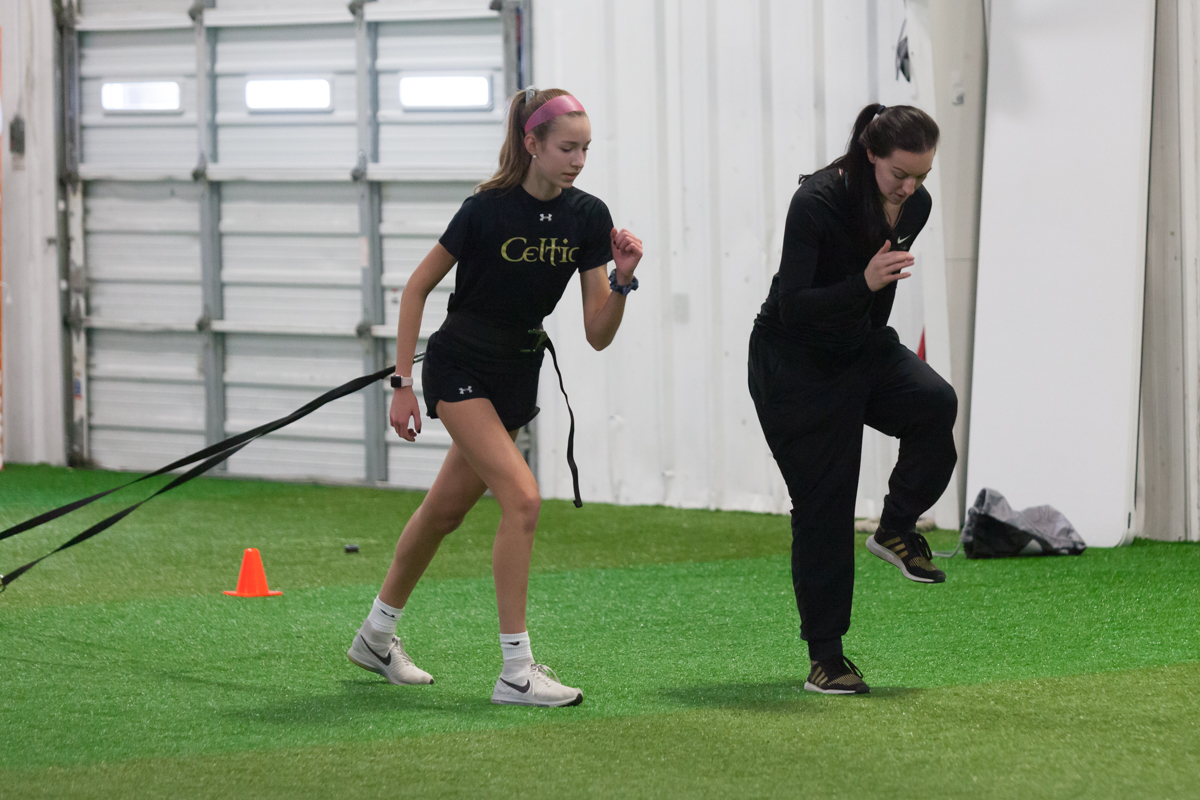
And constantly reinforce proper accelerating, sprinting and change of direction technique. Mastery of motor skills matter year-round.
7. Generally speaking, female athletes have similar strength and conditioning programs to boys. Yes, you want to consider differences in physiology and look at athlete assessments before writing their programs.
But I will say this: just because they are females doesn’t mean you tip-toe around their fitness programming and treat them like little snowflakes.
Female athletes will also lift weights like the boys. They will strengthen their total bodies. They will do explosive work. They will do push-ups. They will do pull-ups.
8. Focus on what you can control when it comes to training the female athlete. Telling young girls, “yeah, you have wider hips, so you’re more susceptible to ACL” is defeatist.
Why?
Anatomy and physiology are completely out of a girl’s control, so it’s best to empower her and focus on what she can control to reduce chance of knee injury.
You can mention things like working on core stability to handle high forces in contact sports, the ability to pump the brakes for better deceleration and rapid change of direction, or building powerful hamstrings and gluteals for speed production.
Now that the physical training is out of the way 900 words later, let’s dive into the meat and potatoes of this article. <— yes, I’m warmed up and just getting started. ;-O
Here’s the thing: I love teaching physical training, writing strength and conditioning programs, understanding the impact of physiology on performance, and solving the ACL puzzle.
Truthfully, though, these all should be a requirement for anyone working with female athletes. They’re in the job description (or should be, for that matter).
What’s not written in the job description when you apply to coach young girls are these things:
– Active listening
– Empathy
– Relationship building
– Respect
– Trust
– Encouragement
– Human and character development
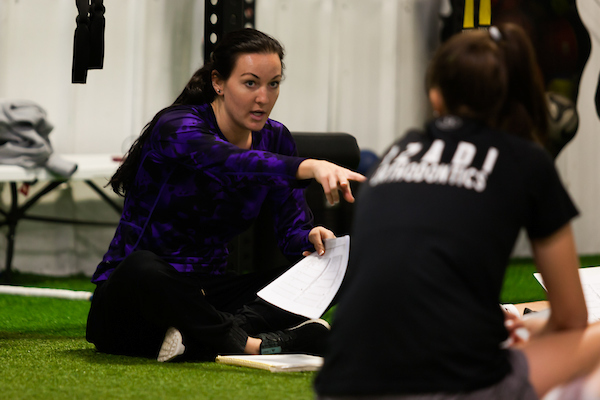
Let me say this: it’s a blessing to be a coach to female athletes – to be able to inspire the next generation of girls, and turn them into women as confident as Beyonce, as fearless as Sansa Stark, and as strong as Serena Williams.
You have the opportunity to empower.
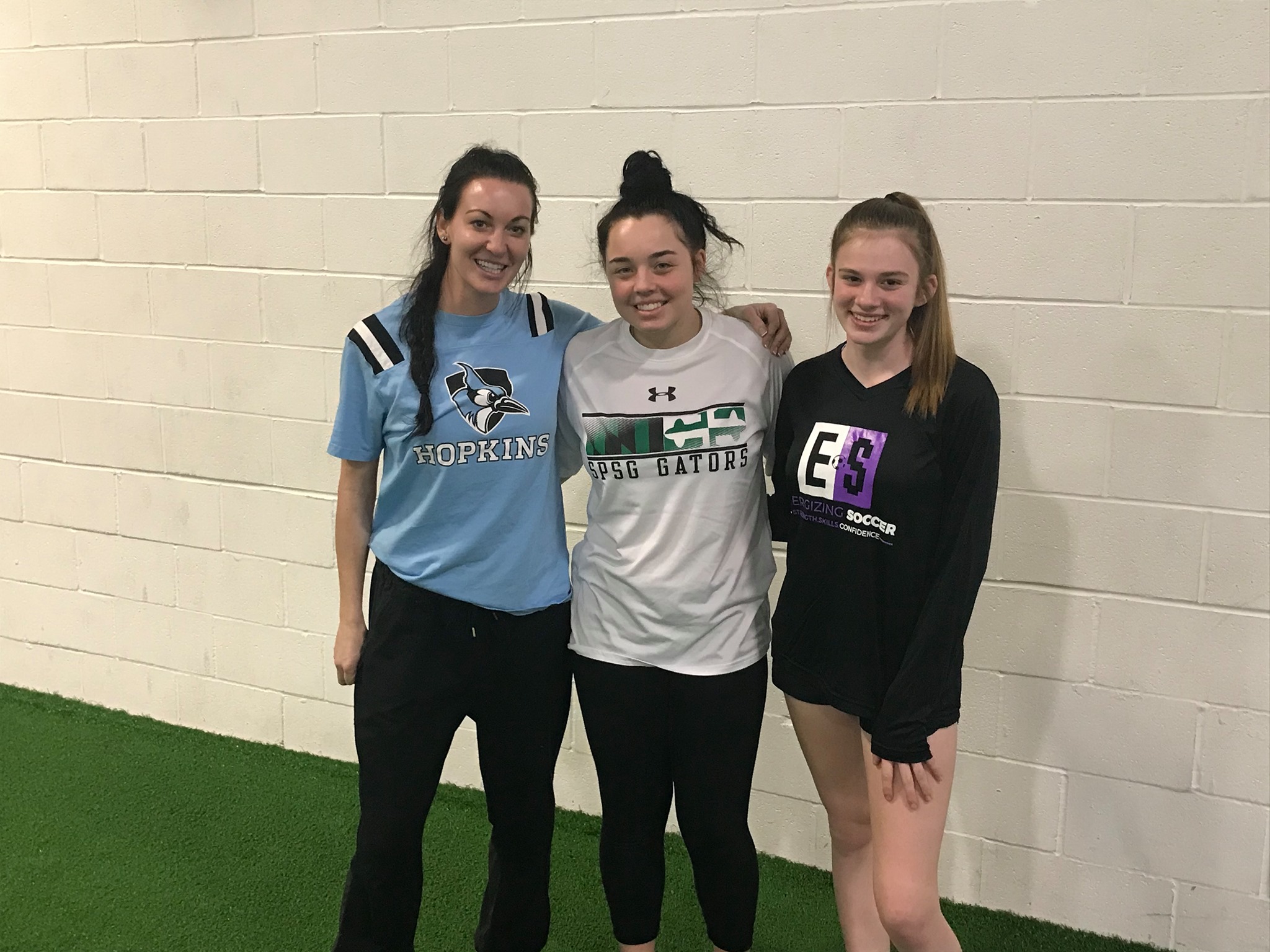
I’d be remiss not to mention what I’ve found over the past eight years of being a strength and conditioning coach to female athletes is, I play a pivotal role in their lives mentally and emotionally.
The girls who have been with me the longest, who fell in love with the process, and who still, are hungry to be better women today physically, mentally and spiritually, are the ones who I connected with beyond the pitch and weight room.
Truthfully, I don’t believe sports teach life lessons.
Coaches do.

With that said, here’s a friendly reminder: you are in the human business.
How well do you know your female athletes?
Do you know how their grades are in school? Do you know what other talents they have? Do you know if they have siblings? Do you know if they had a solo at the band concert? Do you know if they are president of the student government at school? Do you know if they love baking? Do you know if they have good or bad sleep habits?
This stuff matters. And not just because you need to get to know your girls as people, but also, you have to bring out the best in them.
Whether this is on the pitch, in the weight room, or outside of sports, are you amplifying their talents? Let alone, are you encouraging them to dig out the gems inside of them and believe in themselves?
I’m passionate about the soft skills of coaching, to say the least.
My cat, Sergio, is too.

So soften up.
It pains me to still see abusive coaching run rampant today. Worse yet, it’s terrifying to know girls are in the hands of leaders who are narcissistic and downright un-empathetic, who say “f this!” and “f that” and “you suck” and “you’re messing up!”
To add to the bag of coals, these same people claim they love coaching girls because “girls are easier to coach!” or “girls do whatever you say!”
Let’s unpack these dangerous quotes for a second.
For one, be careful when you utter that girls are easier to coach and will listen to everything you demand of them.
As Krista Stoker from S2 Breakthrough Performance alludes to in this webinar, your words matter, given the woman you’re trying to build.
This brings me to a profound question: do you want to build strong, empowered women?
Because if so, the last thing you want to say out loud is “girls do whatever you say!” which implies you’re creating doormats who don’t stand up for themselves, who don’t set boundaries, and who say “yes” to everything.
As these girls blossom into professional women, it’s critically important they know to stand up for themselves in the work place, and be confident in their crafts.
Your words, your actions, your habits must be in alignment
with the type of women you want to build. Share on X
Even when you speak to other women, especially a female colleague or coach, are you treating them in a way that comes from love and respect?
Your young female athletes are watching.
Are you undermining her, or uplifting her as a professional?
Your young female athletes are observing.
Are you berating here, or encouraging her?
Your young female athletes are analyzing.
Taking the conversation back to the opening line, if you’re a coach to female athletes, you need to be walking the walk right now.
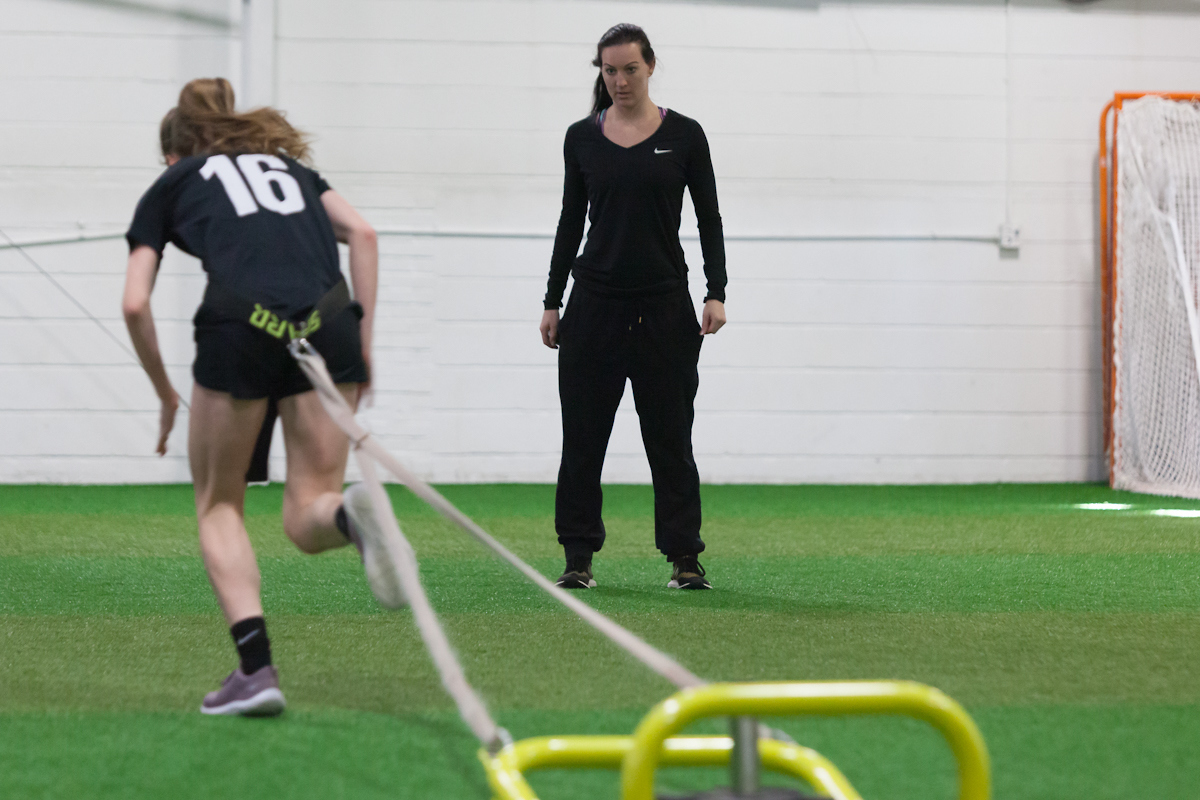
And this doesn’t just go for male coaches. It goes for everyone across the board.
Women must build other women up, too.
I’m a female coach and in no way am I exempt from this discussion.
I, too, have to re-evaluate the way I behave, talk and listen to young girls. The good old-fashioned art of coaching is a meticulous study that lasts a lifetime – to deeply understand what makes athletes spark, what they need to fall in love with the process, and more importantly, what they need from you to become the best human they can be.
Admittedly, I remain critical of myself, which is why I have an insatiable desire to study human psychology, behavior change, leadership theory and motivation. (Motivational Interviewing and Inside Out Coaching are my favorite books I recommend for all coaches).
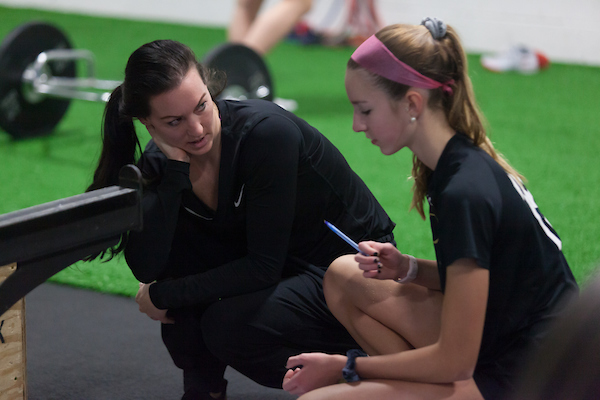
Becoming deeply self aware of my actions and words isn’t an easy pursuit, but it does make me a more authentic, inspiring leader with a growth mindset.
Expounding further, taking inventory of my actions off the pitch, and ensuring I build other women up in my respected field is a behavior that translates onto the field in a leadership role.
Who are you when no one is watching?
Though it can be a punch to the gut when you examine yourself and how you’ve fallen short, your young female athletes need you to grow, too. Evolve and do better, Coach.
Indeed, self awareness is a wonderful thing…
If you aren’t a good listener and offer unwanted advice when a girl is crying, can you listen and make sure she feels heard without saying a word?
If you are treating other women in your life with disrespect and asking them for favors like tit-for-tat, can you treat them like professionals and promote them as talented at their crafts regardless of if they give something in return or not?
If you show other women in your life jealousy, can you show them support and come from a place of love and and encouragement?
If you are scared of other women becoming too powerful and successful at what they do, can you stop operating out of a place of fear, and work on pouring love into yourself and mastering your craft first?
If you aren’t empathetic and are quick to dismiss others’ feelings, can you hold space for your young female athletes to express their worries and frustrations and fears?
If you are shouting profanity and talking down to adolescent girls at 120 decibels, can you act like a professional who can speak eloquently and calmly?
If you are focused on the wins and rankings and the numbers, can you find a way to develop the character of your girls who will blossom to be driven, confident and empowered professionals one day?
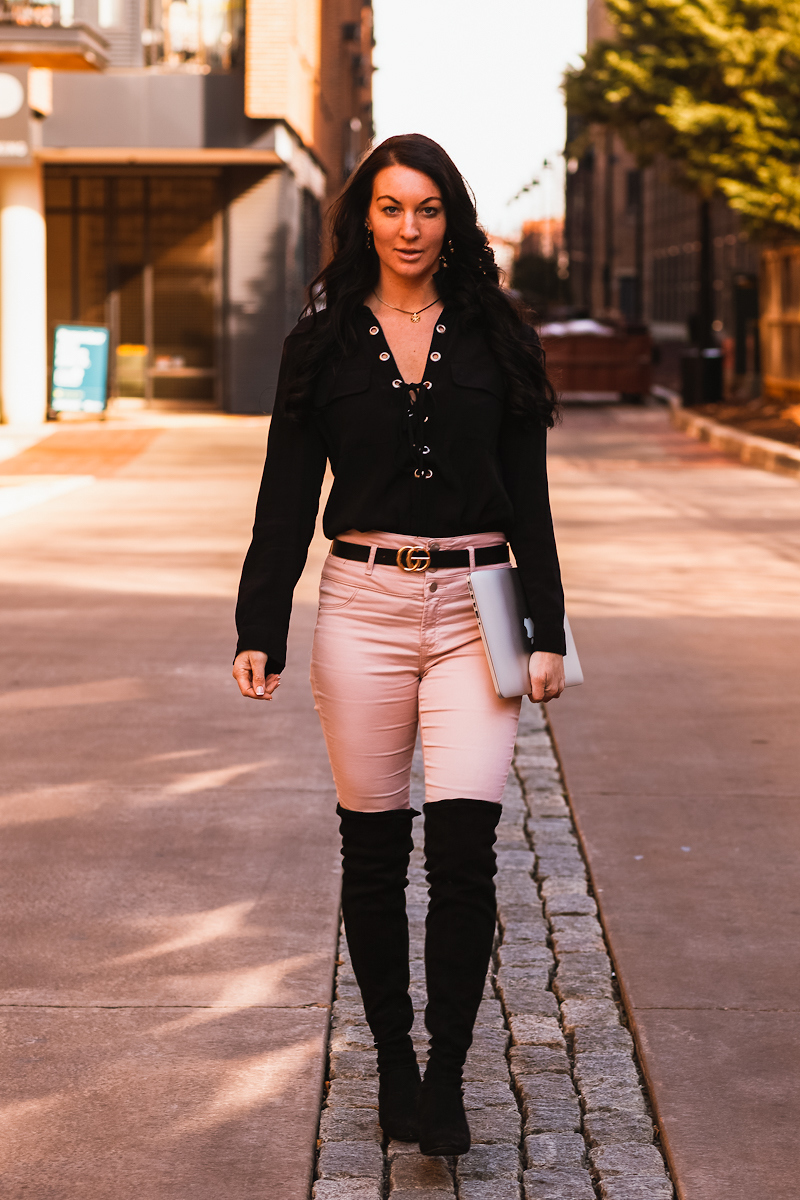
Let’s be honest: what is your end goal here?
Last I looked, no one remembered a coach for their rolling list of wins and championships.
They remembered them for their impact and life lessons beyond the game.
Female athletes need human-centered coaching. They need you to set the example, be a leader, and have your actions speak louder than words.
As I alluded to earlier, it’s a blessing to be able to bring out the jewels of the next generation of young girls – to show them that they are multi-dimensional, amazing humans with beauty, strength, and genius.
And too, to show them that they are capable of so much magic in sports, school, career, and creative hobbies.
I urge you, let your female athletes shine,
as you cheer them on in the shadows. Sure, you won't get
the limelight, but you'll allow a young girl to sparkle. Share on X
Leave your ego at the door because building strong women starts with you, Coach.
If you enjoyed this article and found it valuable, inspirational, and impactful, you can leave a creative tip HERE.
For a year-round program that empowers young athletes with speed, strength and conditioning, get Total Youth Soccer Fitness 365
REFERENCES
Quatman-Yates, C.C., Quatman, C.E., Meszaros, A.J., Paterno, M.V., et al. (2012). ‘A systematic review of sensorimotor function during adolescence: A developmental stage of increased motor awkwardness?’ Bristish Journal of Sports Medicine, 46(9): 649-655
Stracciolini, Andrea, et al. “Resistance Training for Young Female Athletes .” YOUNG FEMALE ATHLETE, SPRINGER, 2018, pp. 29–41.
Tønnessen, Espen & Svendsen, Ida & Olsen, Inge & Guttormsen, Atle & Haugen, Thomas. (2015). Performance Development in Adolescent Track and Field Athletes According to Age, Sex and Sport Discipline. PLoS ONE. 10. 10.1371/journal.pone.0129014.
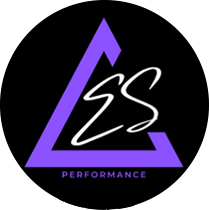

No Comments